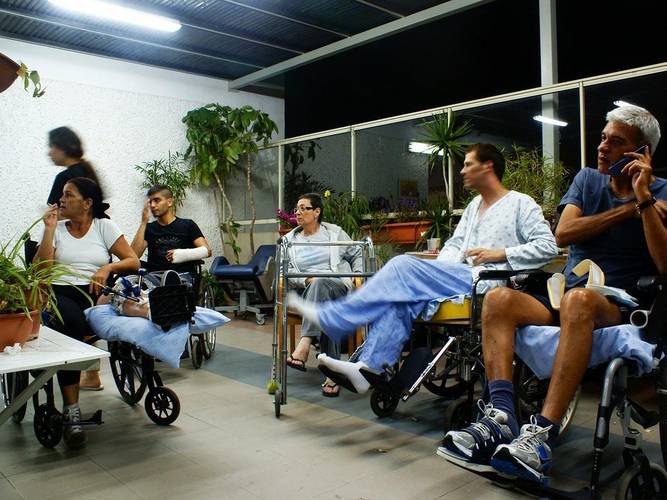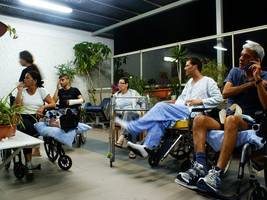The Human Rights Ombudsman of the Republic of Slovenia believes that the Pension and Disability Insurance Institute of Slovenia could, in declaratory proceedings in which this is possible, instead of evidence with an expert body, conduct evidence with a witness or other means of evidence, thus shortening the time taken to make decisions on disability insurance rights. The Institute rejected the position of the Ombudsman. Since the Institute did not exhaust all the possibilities for reducing the backlog in asserting disability insurance rights, the Ombudsman judged that it was not acting in accordance with the principle of good management.
* * *
A complainant contacted the Human Rights Ombudsman of the Republic of Slovenia (Ombudsman) because of the lengthy decision-making by the Pension and Disability Insurance Institute of Slovenia (ZPIZ) on his application for recognition of the status of a disabled person of category I and the right to a disability pension. The ZPIZ confirmed the complaints of the complainant by explaining that in 2022, due to the amendment of Article 403 of the Pension and Disability Insurance Act (ZPIZ-2), on the basis of which the right to disability allowance can be regained for physical impairment since 7/8/2021, and the Order on determination types and level of physical impairments, which entered into force on 30/10/2021, the number of expert opinions made on the existence of physical impairment rose by as much as 238% compared to the previous year, which also affected the average duration of procedures for disability assessment.
The ZPIZ explained that in order to solve the problem described, in 2022, it implemented a number of changes in the organisational and personnel fields. As of 1/9/2022, three first-level expert services have been organised within the Expertise Sector in Ljubljana, Maribor, and Celje. New departments for administrative support have been organised in all expertise services, and additional administrative staff have been hired at all disability commissions. The ZPIZ went on to explain that it had also acquired some expert doctors despite the general lack of medical personnel, and some doctors had left, and added that they had increased the number of panels and introduced additional panels for the assessment of physical impairments. Expert workers have been ordered to work overtime, and student work is also helpful.
The Ombudsman judged the appropriateness of ZPIZ's conduct based on the principle of good management, which requires public administration to be open, transparent, responsible, responsive, successful, efficient, ethical, and fair. In accordance with position the Ombudsman has already set out, due to a lack of staff, the procedures may take longer for a while, but they can no longer be referred to when the time required for organisational and/or personnel adjustment of the body has passed.
The Ombudsman welcomed the fact that the ZPIZ has adopted a greater number of measures to reduce backlogs in deciding on rights from disability insurance which correspond to the above-mentioned principle. At the same time, the ZPIZ was warned that in the ascertainment procedure, in which this is possible (especially in the procedures for obtaining the right to an allowance for assistance and service, if the person is clearly immobile), instead of evidence from an expert body, it could obtain evidence from a witness (a relatively new means of evidence, in which the characteristics of evidence from witnesses and evidence from an expert are mixed, e.g. with the insured's personal doctor) or another means of evidence, thus shortening the decision-making time on disability insurance rights.[1]
The described position of the Ombudsman was rejected by the ZPIZ, because the obtaining of evidence from an expert is supposed to be mandatory, and the experts of the ZPIZ are supposed to be bound by the expert opinions of the ZPIZ. The Ombudsman did not follow the stated position of the ZPIZ as he believes that the word "when" in Article 181 of the ZPIZ-2 allows the possibility for the expert associate of the ZPIZ to make a decision without an expert opinion, or to take evidence from an expert only when it is considered necessary. Article 179 of the ZPIZ-2 also stipulates that the competent authority of the ZPIZ must issue a decision no later than four months from the date of initiation of the procedure, "if" an expert opinion is required to determine the rights or in the appeal procedure, which indicates that in decision-making procedures on disability rights evidence from an expert is not required.
Taking into account the above, the Ombudsman judged that the ZPIZ has not yet exhausted all possibilities for reducing the backlog in asserting rights from disability insurance, which represents a violation of the principle of good management, which stipulates that public administration must be efficient, responsive, and successful. The complaint was considered justified. 9.2-30/2022
[1] The Ombudsman previously wrote about this. See: www.varuh-rs.si/letno-porocilo-2019/2-vsebina-dela-in-pregled-obravnavanih-zadev/b-obravnavana-vsebinska-podrocja/215-pokojninsko-in-invalidsko-zavarovanje/.

